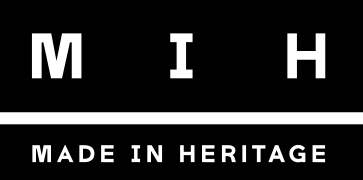Revitalize corporate identity to shape the future.
The reinterpretation of the company's historical materials provides accessible content and indispensable resources for developing corporate training programs and initiating research projects.
HERITAGE AND TRAINING
Research and training benefit greatly from the corporate heritage. The reinterpretation of the company's historical materials is an incredibly effective tool for promoting the brand, developing training programs, and fueling research and employer branding initiatives.
These actions aim to transfer the company's cultural values to both internal and external audiences. This translates into activities focused on showcasing all aspects of the company's culture, work environment, values, and career growth prospects.
By leveraging internal training, the enhancement of historical heritage helps to clearly communicate the company's evolution, values, and identity, thereby fostering a strong sense of belonging.
In sectors such as fashion and design, which are typically associated with the "Made in Italy" label, historical heritage has long served as inspiration for the development of new products. It also serves as an ideal platform for transmitting unique skills, identity traits, and specific corporate culture to employees, suppliers, staff, customers, and anyone associated with the company.
DIGITAL TRANSFORMATION AND NEW PROFESSIONS
For a considerable time now, there has been a noticeable gap between the worlds of education and work. While high schools and universities offer an increasing variety of diplomas and degrees, the lack of preparedness among first-time entrants into the workforce remains unchanged. Genuine collaboration between academia and entrepreneurship is rare, and Italian companies are resigned to internally training professionals, which leads to wasted time and resources. The Made in Heritage project represents a remarkable innovation in this regard
Heritage represents "the added value of a company's history" – the story that identifies and enhances the most significant chapters of a company's past, shaping its present and future. In sectors like fashion and design, historical heritage not only inspires the development of new products, but also serves as a conduit for imparting special skills, identity traits, and specific corporate culture to employees, suppliers, and most importantly, customers. While some aspects of the exclusive Made in Italy processes can be replicated and many ingenious intuitions may be imitated by "low-cost" producers, no one can ever reproduce the unparalleled essence of history and exclusive tradition that truly forms the "core essence" of Made in Italy.
In summary, heritage is a vital element in the enhancement of corporate identities and national brands. However, the reinterpretation of the company's historical materials must begin with research and training activities, utilizing systematic and contextualized study of historical documents. It is evident that corporate communication goals must include collaboration with "cultural actors," and heritage serves as the ideal space for bridging culture and business.
A NEW TRAINING MODEL
Especially in the post-Covid recovery climate, there is an opportunity to become part of diverse yet synergistic networks comprising universities, specialized higher education centers, institutions, foundations, and forward-thinking companies. In these privileged environments, educators and business professionals unite to define shared educational objectives and collaboratively plan study programs that truly benefit students and businesses.
Students who follow these programs can be made available to companies at little to no cost (through internships or apprenticeships), for a flexible duration with specific company objectives. After the completion of the training program and practical experience in the field, companies can decide whether to hire these individuals, often with strong incentives and tax breaks. Similar opportunities also arise for companies seeking to train their existing staff.
Companies as Catalysts for Youth Empowerment
In essence, participating companies become part of a community of genuine "cultural players" who contribute to reintroducing elements of shared heritage to the community they belong to. They actively shape culture while simultaneously creating employment opportunities and promoting youth and female empowerment. These activities, already commendable in their own right, significantly enhance the prestige and credibility of a company or brand.

